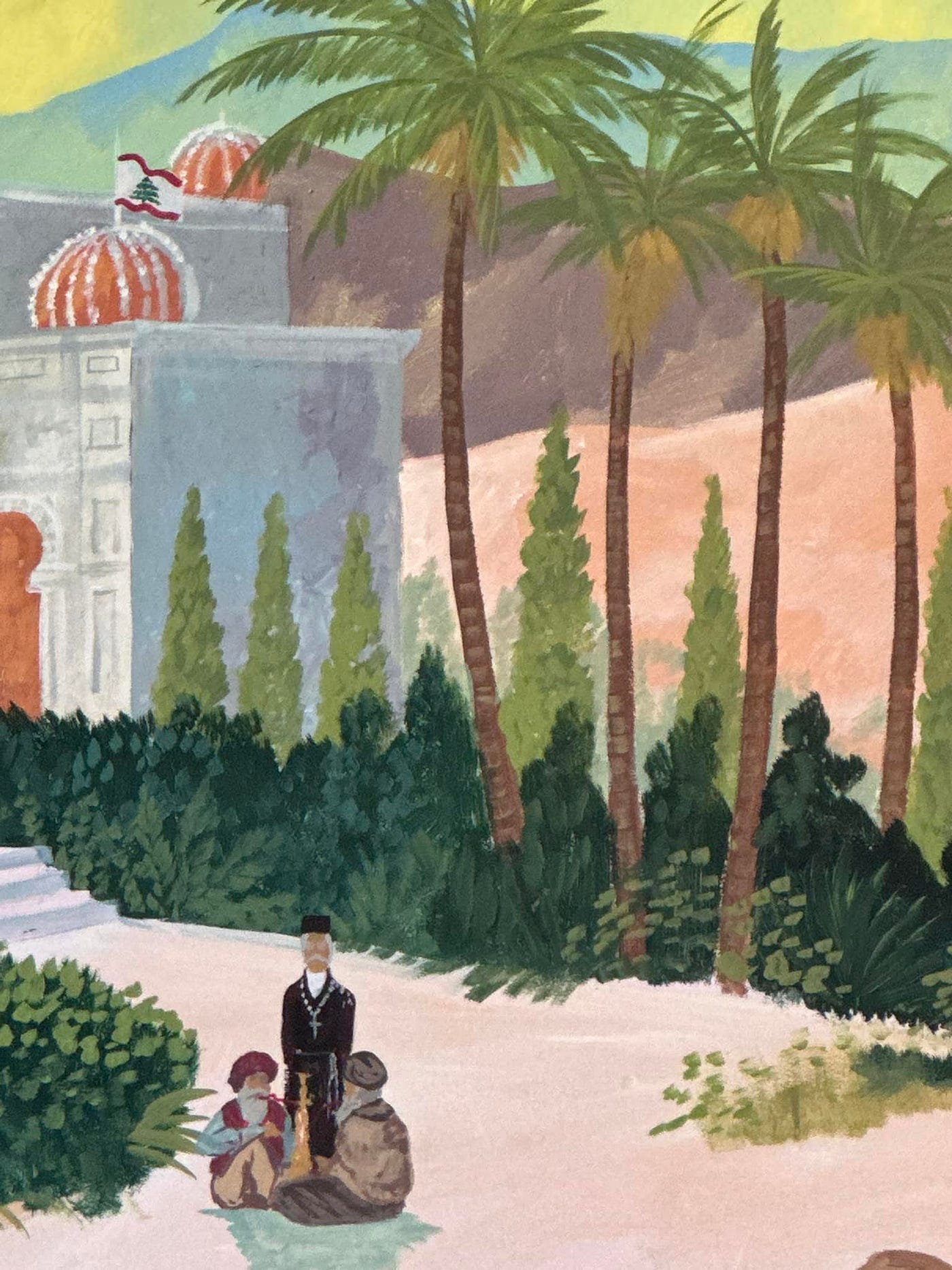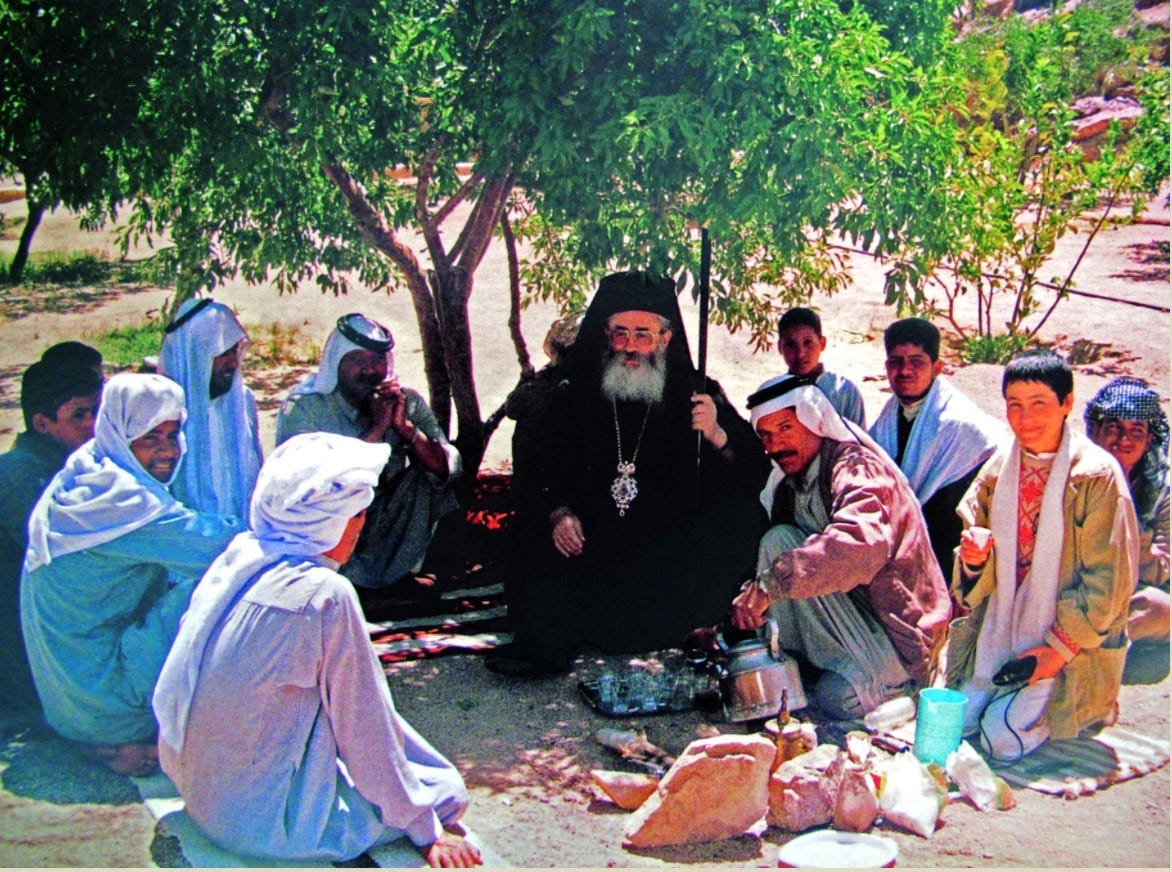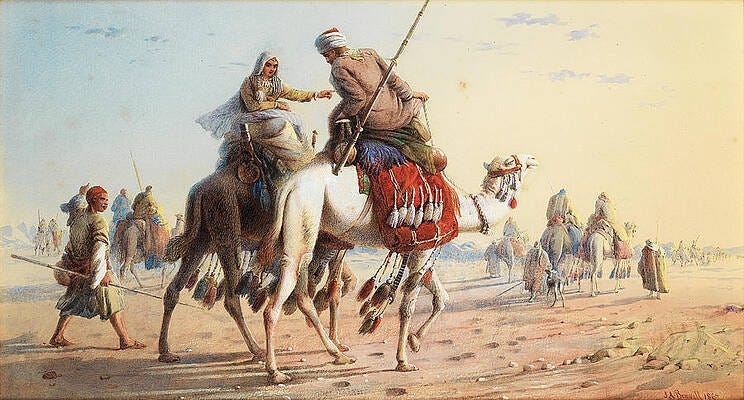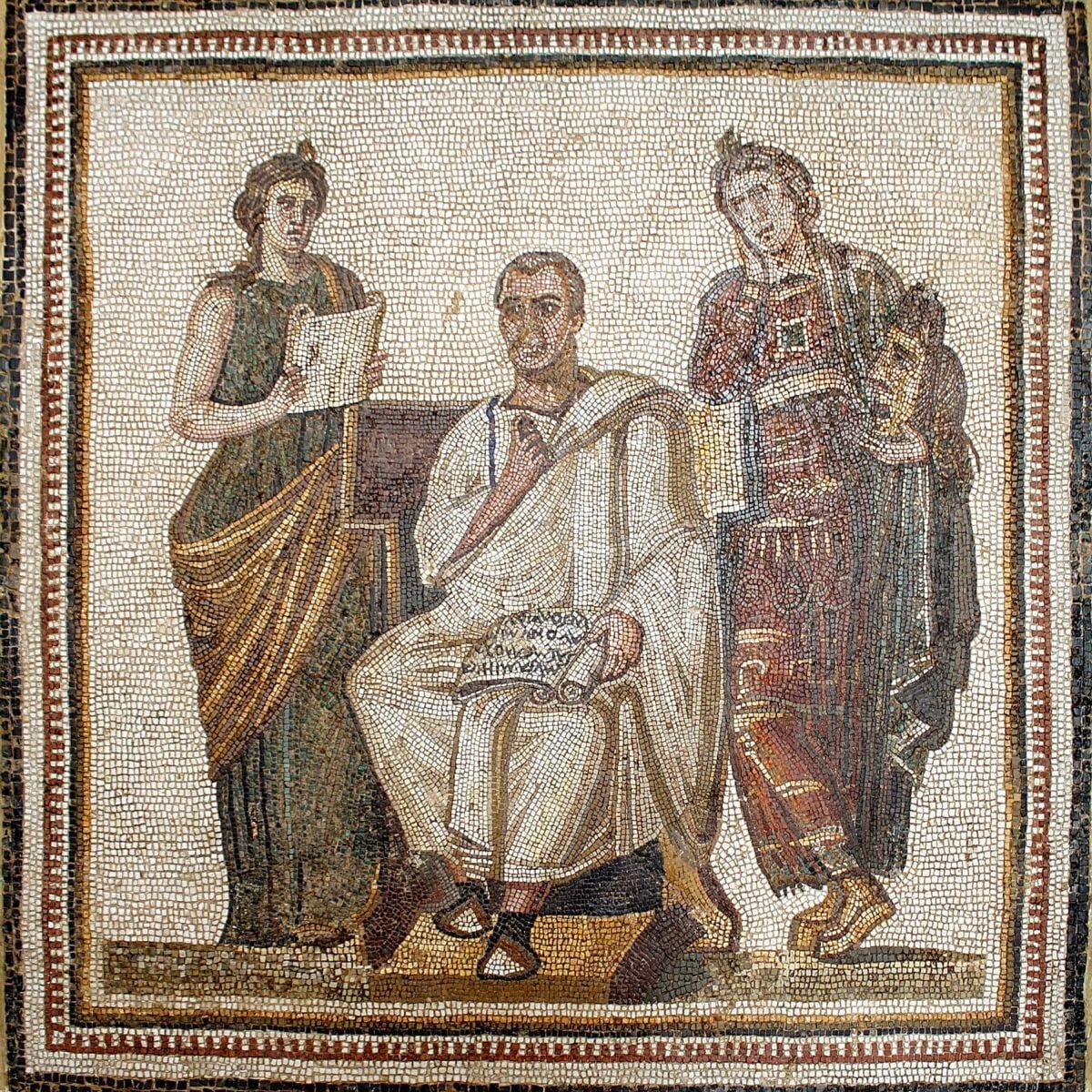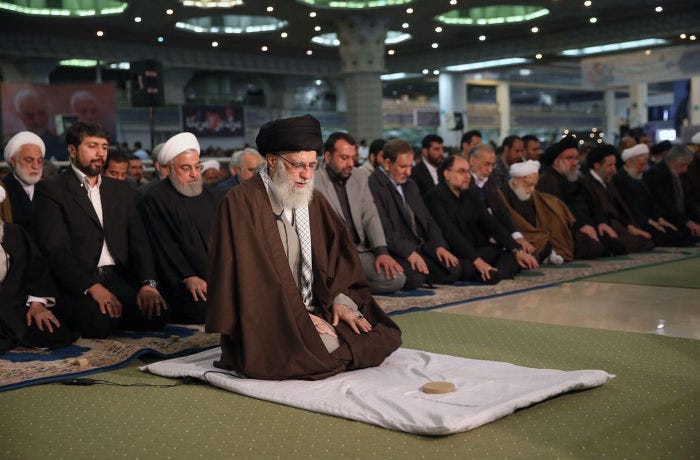Selling God’s Signs for a Paltry Price

כִּֽי־אַתָּ֣ה אָבִ֔ינוּ כִּ֤י אַבְרָהָם֙ לֹ֣א יְדָעָ֔נוּ וְיִשְׂרָאֵ֖ל לֹ֣א יַכִּירָ֑נוּ אַתָּ֤ה יְהוָה֙ אָבִ֔ינוּ גֹּאֲלֵ֥נוּ מֵֽעֹולָ֖ם שְׁמֶֽךָ׃
Yet You are our Father, even though Abraham does not know us and Israel doesn’t recognize us. You, Yahweh, are our Father; from ancient times, Your name is our Redeemer. — Isaiah 63:16
For most Americans, the carnage experienced by Gazans, West Bank Palestinians, and the Lebanese are distant blips we hear about on the news. It serves its purpose for us to bestow our platitudes and shower mothers without children, children without parents, and survivors without limbs our “thoughts”, “prayers”, and most revoltingly our “good vibes”.
Meanwhile, our American government continues to supply IDF terrorists with an endless supply of ammunition while President Joe Biden and his heir apparent VP Kamala Harris have the audacity to claim that they are “working restlessly” for a ceasefire. Could it be any more Orwellian?
For other American families, this is real life. In my hometown of Wichita, Kansas a local business owner lost six members of his family in Beirut including his father. The youngest killed in the household was an eight-year-old child. An eight-year-old. The restaurant is M.I.F. Deli, which serves Mediterranean food. I went there today and noticed their beautiful mural on the wall. It depicts a priest conversing with two bedouins.
It calls to mind one of my favorite photographs featuring a Greek Orthodox bishop at St. Catherine’s Monastery in Sinai amid Muslim bedouin protectors of the site, who have done so for a thousand years.
Semitic Peace
This peaceful display offers a sharp contrast to the demonic actions of the IDF and their NATO enablers. By “peace” I do not mean the English word “peace”. I mean the Semitic salām which, at its most basic level, refers to rendering a situation back to its normative state. If everything functions as it is intended to, that is Semitic peace. Other functions of this root include wholeness and completion, just to name a few.
The truth is, hardly anything about our modern world is normal. Imperialism is not normal, even though we are gaslighted into thinking so. Capitalism is not normal, even though we are gaslighted into thinking so. Platonism, the root of our current sickness, is not normal even though we are gaslighted into thinking so. In contrast to Senator JD Vance, children being shot dead in their schools is not a normal “fact” of life. Cities are not normal. Buildings are not normal. Deities of wood and stone are not normal. Kings are not normal. The post-enlightenment philosopher would liken those points to the works of Jean-Jacques Rousseau who believed that private property was the root of all evil, and that man was noble before civilization.
Nothing is so gentle as man in his primitive state, when placed by nature at an equal distance from the stupidity of brutes, and the fatal ingenuity of civilized man. — Discourse on the Origin and Basis of Inequality Among Men, Part I
This philosophy is called the myth of the “noble savage”. Stanley Kubrick once quipped that, contrary to enlightenment philosophers, man was more of an “ignoble” savage than anything (Ps. 14:1–3). Rousseau believed in a Platonic utopia in the same vein as Thomas More’s imagination, in which he named his work after the Greek words οὐ (no) and τόπος (place). How fitting. Believers in utopia maintain that man is perfectible, like Nietzsche’s ungodly Übermensch (superman). This is why, no matter how many times it is attempted, a Marxist utopia will forever remain a philosophical idea. Marxism envisions a tribe without a sheik, a family without a paterfamilias, and an oikos without an oikonomos (house manager).
Volksgeist and its Consequences
On the other side of the political spectrum, the far right appropriates the tribe by romanticizing it into a Platonic national identity and corporation tied specifically to ethnic rights to specific real-estate. This is why Manifest Destiny, Lebensraum, and Zionism are virtually the same ideology. The assertion in all three, is that groups of a certain ethnic stock are metaphysically tied to a specific plot of land and therefore are entitled to it. Manifest Destiny asserted that Europeans were destined to colonize all of North America, Lebensraum sought to unite all Germans stretching from France to western Poland under one Reich, and Zionism planned the conception and implementation of a Jewish state. The issue with all three is that they are built upon the Hegelian influenced Volksgeist (national spirit), a Platonic construction that has no basis in concrete reality, but is rather the nation’s transcendental mask. This Volksgeist allowed all three philosophies to overlook the humanity of local residents in their purview, justifying the mass removal and genocide of non-Volk inhabitants. This is what historically separated the reigns of Cyrus and Alexander. Cyrus knew that his fellow Persians were outsiders in Babylon, which is why he made Aramaic (not Persian) the lingua franca of his empire. Alexander, on the other hand, believed in the Volksgeist of the Greek people which is why he implimented a “Hellenization” campaign, to “civilize” the Aramean “barbarians”. Hellenism, of course, is just an idea. It doesn’t really exist. Alexander lives on through his idealogical descendants today, especially Netanyahu.
The Bedouin Tribe
While these modern Hegelian-infused philosophies target the Platonic ideal, it is the concrete reality of the nomad in the Syro-Arabian desert that scripture points to and where it was initiated/established/permitted (hūḥalfrom ḥalal) for man to call upon the name of Yahweh (Gen. 4:26).
It is the tribal organization of a sheik/ ab (father) over a familial unit, guided by his staff. In Hebrew, the word for a shepherd’s staff and the “tribe” are one and the same.
The familial unit appears as a מִשְׁפָּחָה mišpāḥâ. This is the nominalized form of the verb שָׁפָה šāp̄â — to be windswept. The Arabic counterpart is سفو / سفى safā/ safū and refers to something (usually dust) being swept away by the wind. It also sounds remarkably similar to the biblical “judges” who were temporary tribal leaders of the Israelites during times where organized leaders were necessary. That word is שָׁפַט šāp̄aṭ — to judge, govern, vindicate, punish. They functioned almost exactly as a sheik would, albeit with a strict term limit. The biblical vocabulary surrounding family and tribe is clearly linked with the pastoral and the nomadic. It is crucial to understand the paradigm the scriptural authors are offering to their hearers. The perfect (שָׁלֵם šālēm) state of man and societal organization is shepherdism. It is not an ideal (ala Plato) but a reality that is decreed by God because shepherds, like Abel, render back to God from what they have been provided. Any other societal organization is by definition man competing with God. Cain, the archetype of the farmer, cultivates produce of the cursed ground (Gen. 3:17) as the work of his own hands, and settles and builds a city. Because a city is stationary and hoards resources, it becomes privy to attack and a battle over those said resources ensues. A bedouin tribe is always on the move. They do not have city walls to protect them, but Yahweh in the desert who keeps the forces of chaos at bay to allow life to exist. Isaac did not have to fight for his resources. When other herdsmen wanted to claim ownership over the wells he dug, he simply pitched his tents and moved somewhere else. A city does not have this luxury. It is all or nothing.
וַיֵּ֥לֶךְ מִשָּׁ֖ם יִצְחָ֑ק וַיִּ֥חַן בְּנַֽחַל־גְּרָ֖ר וַיֵּ֥שֶׁב שָֽׁם וַיָּ֨שׇׁב יִצְחָ֜ק וַיַּחְפֹּ֣ר אֶת־בְּאֵרֹ֣ת הַמַּ֗יִם אֲשֶׁ֤ר חָֽפְרוּ֙ בִּימֵי֙ אַבְרָהָ֣ם אָבִ֔יו וַיְסַתְּמ֣וּם פְּלִשְׁתִּ֔ים אַחֲרֵ֖י מ֣וֹת אַבְרָהָ֑ם וַיִּקְרָ֤א לָהֶן֙ שֵׁמ֔וֹת כַּשֵּׁמֹ֕ת אֲשֶׁר־קָרָ֥א לָהֶ֖ן אָבִֽיו׃ וַיַּחְפְּר֥וּ עַבְדֵֽי־יִצְחָ֖ק בַּנָּ֑חַל וַיִּ֨מְצְאוּ־שָׁ֔ם בְּאֵ֖ר מַ֥יִם חַיִּֽים׃ וַיָּרִ֜יבוּ רֹעֵ֣י גְרָ֗ר עִם־רֹעֵ֥י יִצְחָ֛ק לֵאמֹ֖ר לָ֣נוּ הַמָּ֑יִם וַיִּקְרָ֤א שֵֽׁם־הַבְּאֵר֙ עֵ֔שֶׂק כִּ֥י הִֽתְעַשְּׂק֖וּ עִמּֽוֹ׃ וַֽיַּחְפְּרוּ֙ בְּאֵ֣ר אַחֶ֔רֶת וַיָּרִ֖יבוּ גַּם־עָלֶ֑יהָ וַיִּקְרָ֥א שְׁמָ֖הּ שִׂטְנָֽה׃ וַיַּעְתֵּ֣ק מִשָּׁ֗ם וַיַּחְפֹּר֙ בְּאֵ֣ר אַחֶ֔רֶת וְלֹ֥א רָב֖וּ עָלֶ֑יהָ וַיִּקְרָ֤א שְׁמָהּ֙ רְחֹב֔וֹת וַיֹּ֗אמֶר כִּֽי־עַתָּ֞ה הִרְחִ֧יב יְהֹוָ֛ה לָ֖נוּ וּפָרִ֥ינוּ בָאָֽרֶץ׃
So Isaac departed from there and encamped in the Valley of Gerar and settled there. And Isaac dug again the wells of water that had been dug in the days of Abraham his father, which the Philistines had stopped after the death of Abraham. And he gave them the names that his father had given them. But when Isaac’s servants dug in the valley and found there a well of spring water, the herdsmen of Gerar quarreled with Isaac’s herdsmen, saying, “The water is ours.” So he called the name of the well Esek because they contended with him. Then they dug another well, and they quarreled over that also, so he called its name Sitnah. And he moved from there and dug another well, and they did not quarrel over it. So he called its name Rehoboth, saying, “For now the Lord has made room for us, and we shall be fruitful in the land.” — Gen. 26:17–22
This is the simple reality that still exists today in the wilderness of Syria, Arabia, and the Levant. Unlike the Marxist utopia, bedouin tribes are hierarchical. The sheik has fundamental privileges that the other members do not have. That being said, the sheik is still accountable to his God and he knows this. There is a hadith that tells the story of a woman who once corrected Umar ibn al-Khattab during his Friday khutbah (sermon). Umar said to not exaggerate the dowries of women. A woman in the masjid then recited a verse (āya) from the Qur’an (4:20) that contradicted what Umar said. Umar smiled and said: “The woman is correct and Umar is mistaken”. The woman did not have the same station as Umar, but the Qur’an was above both of them. Caliphs are just managers (المدبرة) of the proprietor’s (الملك) property. There is only one proprietor to the sheik. There is no god, but God.
The Roman Family
Related, but not identical to the bedouin tribe is the Roman family structure. Like the tribe it is built around a patriarch. This is different than the modern nuclear family, which is an unnatural setting where families are divided into isolated suburban units. The traditional Roman and Arab families were much broader and encouraged internal cooperation spanning two or three generations. The key difference with the Roman family, is that it was primarily agricultural and therefore sedentary.
The New Testament, however, takes the Roman family and reframes it in terms of a portable bedouin tribe. For one, Jesus and Paul refer to God as “Father” which plays to the bedouin ab as well as the Roman paterfamilias. This can be seen especially within the terminology of Paul’s letters.
Ὅτι δέ ἐστε υἱοί, ἐξαπέστειλεν ὁ Θεὸς τὸ Πνεῦμα τοῦ Υἱοῦ αὐτοῦ εἰς τὰς καρδίας ἡμῶν, κρᾶζον Ἀββᾶ ὁ Πατήρ.
And because you are sons, God has sent the Spirit of His Son into our hearts, crying, “Abba, Father!” — Gal. 4:6
The phrase “Ἀββᾶ ὁ Πατήρ” incorporates both the Aramaic and Greek words for father, solidifying the bedouin and Roman family structures his audience would understand. Like a bedouin sheik, Paul was not a “house builder” but a tent maker (Acts 18:4). Like a bedouin tribe, the Church is portable and is present wherever “two or three” are gathered in Christ’s name. This is because Christ functions as the tabernacle (John 1:14), a tent that itself functioned as a temple for the Israelites. As Christ proclaims to the Samaritan woman,
Ἰησοῦς λέγει αὐτῇ, Γύναι, πίστευσον μοι, ὅτι ἔρχεται ἡ ὥρα ὅταν οὐκ ἐν τῷ ὄρει τούτῳ, οὐδὲ ἐν Ἰερουσαλήμ προσκυνήσετε τῷ Πατρί. Ἐν τῷ οἶδα ὅτι προσκυνήσετε ὃ οὐκ ἐγνωκώς. Ἡμεῖς προσκυνοῦμεν ὃ ἔγνωμεν, ὅτι ἡ σωτηρία ἐκ τῶν Ἰουδαίων ἐστίν. Ἀλλ’ ἔρχεται ἡ ὥρα, καὶ ἔνεστιν ὅταν οἱ προσκυνοῦντες αὐτὸν ἐν πνεύματι καὶ ἀληθείᾳ προσκυνοῦσιν· ὅτι καὶ ὁ Πατήρ τοιούτους ζητεῖ τοὺς προσκυνοῦντας αὐτόν.
“Woman,” Jesus replied, “believe me, a time is coming when you will worship the Father neither on this mountain nor in Jerusalem. You Samaritans worship what you do not know; we worship what we do know, for salvation is from the Jews. Yet a time is coming and has now come when the true worshipers will worship the Father in the Spirit and in truth, for they are the kind of worshipers the Father seeks.
Another feature of the Roman family that the New Testament is interested in, is its focus on adoption and table fellowship. To be a part of God’s community in the new covenant is simply to be in Christ, that is, under his lordship. Genealogy has nothing to do with it. It is an open table (τράπεζα), where the Jews and Greeks can break bread and share a meal. The Greeks need not become Jews, but are to stay as they were found (1 Cor. 7:20). This is in blatant contrast to the modern liberal conception of the “melting pot”. The Greeks are not melted into Judaism. The Greeks remain Greeks. They are adopted as sons of God through Jesus Christ. In Roman households, the Paterfamilias would choose (elect) his heir irrespective of blood descent. He would then adopt his son by placing him on his knee, which in Latin is genu whence we get the word “genuine”. His “genuine” son was not necessarily his biological one, but the one he chose. This is at the heart of Paul’s presentation of the εὐαγγέλιον, especially in Romans 9–11. This is the Roman reframing of the original bedouin styled prophecy of Genesis 9:27 which said that the Japhethites (the Greeks) would one day dwell in the tents of Shem.
How Israel Betrays God
There is an aya (verse, sign, proof) of the Qur’an that speaks of selling God’s signs for a small (or paltry) price.
ٱشْتَرَوْا۟ بِـَٔايَـٰتِ ٱللَّـهِ ثَمَنًا قَلِيلًا فَصَدُّوا۟ عَن سَبِيلِهِۦٓ إِنَّهُمْ سَآءَ مَا كَانُوا۟ يَعْمَلُونَ
They have sold the proofs of God (ايَـٰتِ ٱللَّـهِ ayatiullahi) at a cheap price and turned away from His path; evil is what they did. — Q. 9:9
The Arabic word آية āya refers to God’s directives to his prophets. The Hebrew equivalent is the verb אָוָה āwah meaning to “mark with a sign”. As a noun, we have the word אוֹת ōwt which is used all over the Old Testament to describe the terms of the various covenants God makes with his people. God instituted the Law of Moses as an אוֹת for the Israelites (Ex. 31:17). That is same Law that says,
וְגֵ֖ר לֹ֣א תִלְחָ֑ץ וְאַתֶּ֗ם יְדַעְתֶּם֙ אֶת־נֶ֣פֶשׁ הַגֵּ֔ר כִּֽי־גֵרִ֥ים הֱיִיתֶ֖ם בְּאֶ֥רֶץ מִצְרָֽיִם׃
You must not oppress a foreign resident; you yourselves know how it feels to be a foreigner because you were foreigners in the land of Egypt. — Ex. 23:9
Zionism abuses God’s words for their own political ambitions, slaughtering Palestinians and Lebanese settlements.
The Qur’an holds both Jews and Christians accountable for how they have abused God’s signs. The Christians, for example, abused the Eucharistic table and weaponized it. The verbiage around the table is the same in the Qur’an. The table (مَآئِدَةً māida) is to be a feast (عِيدً ‘eid) and a proof (ءَايَةً āyat).
قَالَ عِيسَى ٱبْنُ مَرْيَمَ ٱللَّـهُمَّ رَبَّنَآ أَنزِلْ عَلَيْنَا مَآئِدَةً مِّنَ ٱلسَّمَآءِ تَكُونُ لَنَا عِيدًا لِّأَوَّلِنَا وَءَاخِرِنَا وَءَايَةً مِّنكَ وَٱرْزُقْنَا وَأَنتَ خَيْرُ ٱلرَّٰزِقِينَ
Jesus, son of Mary said: “O God, our Lord: send down upon us a table spread from the sky to be a feast (عِيدًا)for us — for the first of us and the last of us — and a proof (ءَايَةً) from Thee; and give us provision; and Thou art the best of providers.” — Q. 5:114
This is why the Eucharist is at the heart of traditional Christianity. It came as an āyatūllāh. It is therefore a grave sin when it is weaponized and misused. The same is to be said for the Torah and the Qur’an.
This past week, the āyatūllāh of Iran defended Palestine and Lebanon by attacking military targets in Israel. Note the emphasis on MILITARY TARGETS. 90% of the missiles hit their targets. There was only one fatality, a Palestinian, caused by the IDF and United States redirecting a few of the missiles. God keep him and all of the victims of this carnage in eternal memory.




